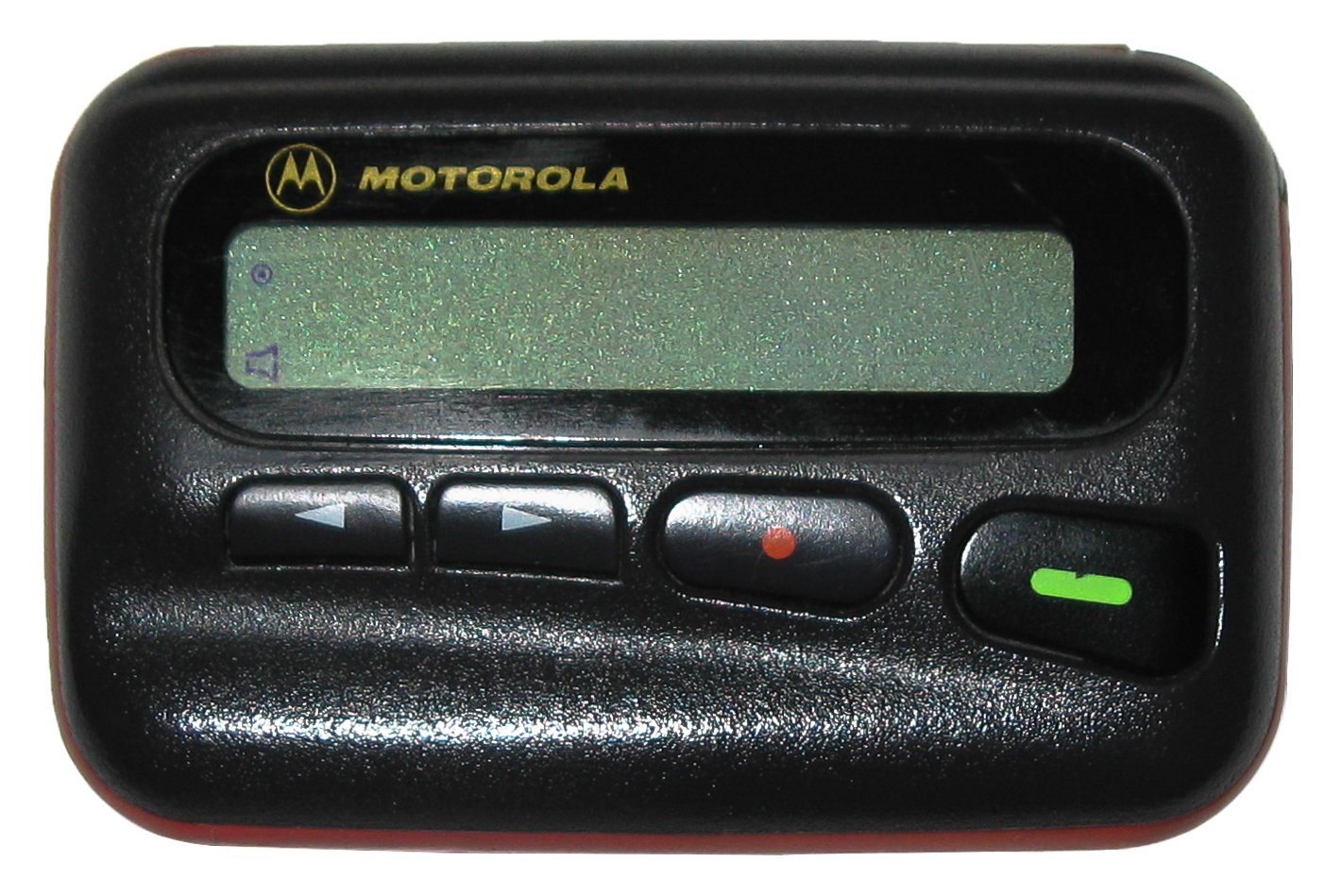You have /5 articles left.
Sign up for a free account or log in.

Source: https://commons.wikimedia.org/wiki/File:Motorola_Pager_LX2_plus.jpg
Complete this sentence: Pagers are to medicine ed as __________ is to higher ed.
Do we have an old school technology that is being replaced by something that is more efficient, but one where that technological advance comes at some unanticipated cost?
In medicine, smartphones have started to replace pagers.
Doctors and nurses like smartphones because they open up new opportunities for asynchronous medical communication. Scans and test results can be sent. Residents can update attendings on the status of the patients through texts. Increasingly, the hospital's electronic medical system comes with an app.
Doctors in training seem to greatly prefer texting to paging. Rather than send a page and wait for a phone call back from the attending physician, the resident can put the patient update or medical question in a text. Messages are often sent to a group of residents, so that all the physicians can see the attending orders.
Smartphones enable more detailed and broader communications between medical providers. Communication moves from oral to written, decreasing the chances miscommunication. Scans, lab results, and other measures can be linked to messages between medical providers - giving more data to help in determining the treatment plan.
This all seems like a great development, right?
In many ways, the replacement of pager with smartphones is a good thing. It is moving medical care forward.
There is a problem, however. That problem is attention.
Nowadays, doctors must be attentive to their phone at all times.
The same technology that family and friends use to communicate is now being used for high-priority medical communications.
Physicians can’t ignore their phones while hanging out with family, as the beeping text may be an urgent question from a resident or another attending.
One solution would be to carry two phones. A personal phone and a work phone.
The problem with that idea is that she would always be having to carry two phones. That seems like one too many phones to keep track of.
Another potential solution would be to have different sounds for texts from hospital people.
The challenge is that in a teaching hospital, physicians will work with numerous residents (and other providers). These residents are always rotating in and out. It would become a full-time job to continually update the ring settings for everyone likely to text.
The bottom line in all this is that medical communications are improving. But it is advancing at the cost of increasing demands on the medical provider's attention.
This also means that the families of physicians must adapt to having a smartphone become part of life at home.
Text messages that come through during dinner must be looked at, as the messages might pertain to a new diagnosis or a patient that is crashing.
The pager-to-smartphone story is one of technological advance, but at a cost.
Greater efficiency is paid for by higher demands on attention.
This story of the downsides of new technologies is not unique to pagers, smartphones, and doctors. Most higher ed people I know bring home their laptops at night and on the weekends.
We read and answer work e-mails on our phones. It seems as if everyone is reading e-mail on vacation these days.
Higher ed work may not be about life and death, but higher ed people are moving towards using their smartphones as always on / always available communication platforms.
Pagers are not an efficient technology. A page is a one-way communication. Once a page is sent, it must be followed by a phone call. But pagers are also single channel communication device. If a page comes, you know it is from work.
Smartphones blur, and then demolish, the line between work and personal.
We are never going to go back. Within the next few years, I do not doubt that pagers will disappear. The radio network coverage for pagers still seems to be stronger than cellular coverage in some rural areas, but that is changing rapidly. The last holdouts for pagers will retire, and hospitals will save money by retiring the pager system.
Are there similar stories we can tell about technology, efficiency, and attention in higher education?
What technologies are we adopting that are increasing our productivity, but doing so at a cost to educators?
Are smartphones changing how faculty and staff communicate?
What is the pager of higher ed?




